LIBRARY
In our Library, you can find publications containing our research, workguides and other materials generated by the Western Hemisphere Program and IOM. You will also find information materials about our tools and campaigns and reports on our work.

Evacuations and Disaster Risk Reduction in the Caribbean
The Caribbean is vulnerable to a range of hazards and is experiencing increased frequency and intensity of climate change-induced hazards, forcing many – especially those residing in informal settlements and coastal zones – to evacuate as a mobility strategy to mitigate risk of harm and loss of life. Evacuations are a commonly used strategy to mitigate risk in the Caribbean, occurring in response to floods, hurricanes and other storms, landslides, volcanic eruptions, and other hazards. Evacuations in the region often happen internally, but cross-border evacuations are becoming increasingly common, drawing on the regional frameworks to permit free movement of people to save lives. This report delineates the key themes in evacuation practices in different Caribbean States, providing a regional view of policies and implementation efforts.
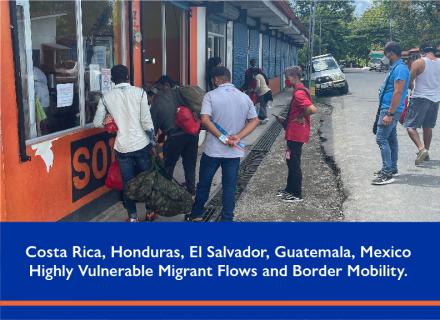
Costa Rica, Honduras, El Salvador, Guatemala, Mexico – Highly Vulnerable Migrant Flows and Border Mobility
This study is a baseline for the evaluation of irregular migration flows and the monitoring of mobility in the border localities of Costa Rica, El Salvador, Honduras, Guatemala and southern Mexico, which was developed in the context of COVID-19 in the period between June 2020 and July 2021 and analyzes migration flows from North to South America and vice versa.
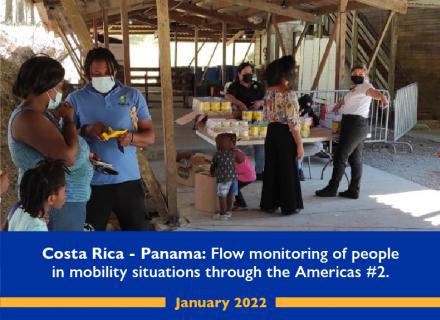
Costa Rica - Panama: Flow monitoring of people in mobility situations through the Americas #2 (January, 2022)
3.724 migrants were counted departing Panamá in January 2022, a 4% increase from December 2021. There was an increase of migrants from Senegal, representing the fourth nationality more surveyed (9%). Nevertheless, Venezuelans (43%), Cubans (15%), and Haitians (14%) still remain the main nationalities detected. 91% of migrants surveyed were travelling in groups, in which 13% of the accompanying persons were under 17 years or younger and 78% of women were travelling as families. The lack of economic resources, food, water, shelter, and transportation are the main difficulties faced by migrants during the trip.
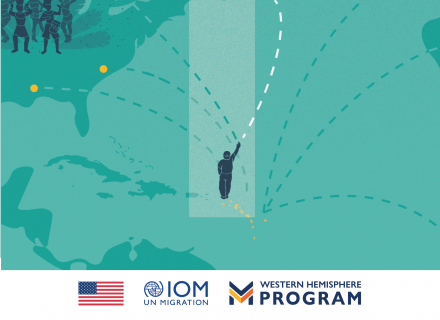
Diaspora Groups of the Eastern Caribbean
The Eastern Caribbean region has some of the highest emigration rates in the world, and yet is also known for maintaining strong ties with their home countries through social groups such as diaspora organizations. This study identified the level of organization of diaspora groups from the Eastern Caribbean sub-region, their needs, challenges they face, and their level of commitment to engage with governments from countries of origin.
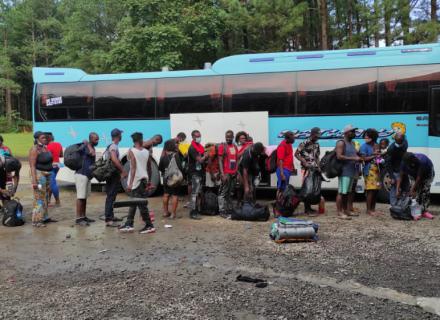
Costa Rica - Panama: Flow monitoring of people in mobility situations through the Americas #1 (December, 2021)
Since August 24, 2021, IOM Panama has published information on the irregular migration flow in Darien, Panama4 under the context of COVID-19. Based on this information, it has been identified that during 2021 the flow of people in a situation of mobility through the Americas with destination to North America is on the rise.

Recruitment practices of migrant workers in Belize, El Salvador, Guatemala, Honduras and Mexico
The analysis of migrant recruitment practices in the countries of the region contributes to the commitments made by the States in the 2030 Agenda to promote decent work, address the feminization of migration and improve the governance of labour migration.
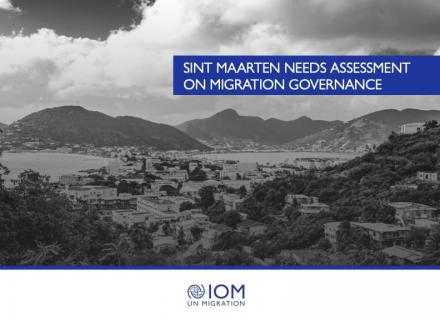
Sint Maarten Needs Assessment on Migration Governance
The Migration Governance Needs Assessment seeks to provide available information, offering a panoramic view of migration governance in Sint Maarten, including information about the successes and challenges in the establishment of a comprehensive migration policy and incorporating the perspective of the private sector and civil society. The report was developed in an accessible format that provides data on the structures and policies regulating migration governance and that identifies priorities for strengthening government capacity to manage migration effectively.

Finding Safer Ground: Planned Relocation Policies and Processes in The Caribbean
This research aims to expand the conversation about planned relocation and to focus specifically on Caribbean experiences. This report draws on good practices in order to provide tools for decision-making and to support States in addressing the needs of persons and communities that are vulnerable to the impacts of climate change. This study highlights opportunities to create more holistic and effective migration and disaster risk reduction policies and draws from interviews not only with government officials but also with community members who experienced the relocation, a critical perspective for understanding how relocations are planned and implemented.
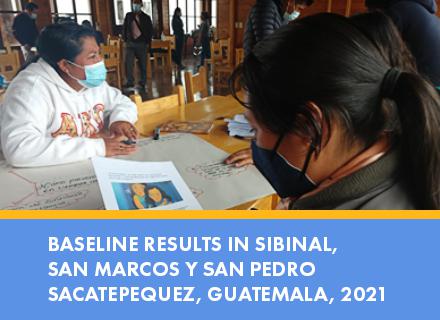
Baseline for "Think Twice" campaign in Guatemala (2021)
The Communication for Development methodology is being implemented in Guatemala in the municipalities of Sibinal, San Marcos, San Pedro Sacatepéquez and Salcajá through "Think Twice" campaign, which seeks that young people learn to inform themselves in a safe way in order to avoid believing rumors or being victims of deception related to irregular migration and local options. This baseline provides an understanding of people's knowledge, attitudes and practices regarding irregular migration and evidence to guide the implementation of the methodology.
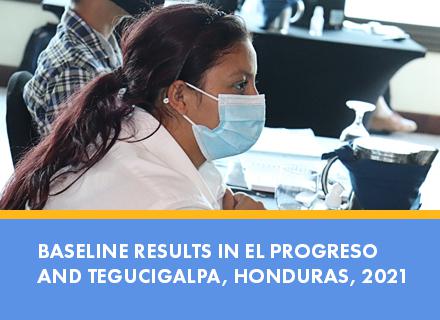
Baseline of "Think Twice" campaign in Honduras (2021)
The Communication for Development methodology is being implemented in Honduras in the municipalities of El Progreso and Central District (Tegucigalpa and Comayagüela), through the campaign "Think Twice", which seeks to teach young people to inform themselves in a safe way in order to avoid believing rumors or being victims of deception related to migration and local options. This baseline allows us to understand people's knowledge, attitudes and practices regarding this issue and to provide evidence that will guide the implementation of the methodology.



